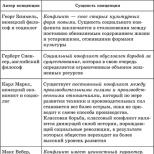Phenylin on guard of heart health. Phenylin - description of the indirect anticoagulant Phenylin mechanism of action
It is imperative to eliminate these diseases in time, otherwise much more serious consequences may occur. One of effective drugs which is used to treat various diseases vein Fenilin. It has long established itself as effective remedy for the treatment of blockage of veins, inflammation and.
This is a synthetic type of drug that prevents increased blood clotting. The instructions indicate that this is an indirect action. The main component of the drug is phenindione.
It is due to it that blood clotting decreases, blood clots resolve, inflammation disappears, and others. discomfort in the legs.
Composition and form of release
1 tablet of the drug contains the following components:
- the main component is phenindione 0.03 grams;
- additional components - milk sugar, starch powder, talc, citric acid.
Tablets are white, sometimes creamy. The shape of the tablets is cylindrical.
Produced in cardboard packaging with blisters and glass jars.
Pharmaceutical properties of the drug
The drug Fenilin is part of a group of anticoagulants with an indirect effect (drugs that slow down  effect on blood clotting).
effect on blood clotting).
The active ingredient, phenindione, causes hypoprothrombinemia, which is associated with problems in the formation of prothrombin in the liver.
It also leads to a decrease in the formation of coagulation factors VII, IX, X of the blood composition, a decrease in the level of plasma tolerance to heparin, the presence of lipid components in the blood composition and an increase in the properties of the permeability of the walls of blood vessels.
The action of the drug begins after 8-10 hours and reaches the maximum level of concentration 24-30 hours after taking the drug.
This tool has a quick and complete absorption. The main substance of the drug passes through the barriers of the histo-hematic type and accumulates in the tissues. The metabolic process takes place in the liver. Excretion of the substance occurs through the kidneys unchanged and in the form of metabolites.
Indications for use
Fenilin is recommended to be taken during increased blood clotting, it has an interfering effect on blood clotting. It is often prescribed during treatment and for the prevention of thrombotic diseases. It should be understood that with thrombosis this remedy is taken for a long time.
In addition, according to the instructions, this medicine must be taken for the treatment and prevention of conditions:

Also, this tool can be taken in the postoperative period to prevent various complications.
When not to prescribe
According to the instructions, the drug should not be taken in the following situations:
- if there is an individual intolerance to the constituent components of the drug;
- if the initial content of prothrombin is less than 70%;
- during various diseases, during which there is reduced blood clotting;
- in cases of high vascular permeability;
- if there are violations in the liver and kidneys;
- during pericarditis;
- with malignant neoplasms;
- if you have a stomach ulcer duodenum and other erosive and ulcerative lesions gastrointestinal tract;
- should not be taken during pregnancy and lactation.
Instructions for use
The medicine is prescribed to be taken orally according to the following scheme:
- first day- per day you need to take from 0.12 to 0.20 grams, about 3-4 doses;
- on the second day- per day from 0.9 to 0.15 grams 2-3 doses;
- on the third day and subsequent days- per day from 0.03 to 0.06 grams, depending on the level of prothrombin in the blood.
After that, depending on the condition of the patient and depending on the individual dynamics of the decrease in prothrombin in the blood composition, the dosage of Fenilin is reduced to 0.01-0.02 at a time. On average, the duration of the course of treatment is from 2 to 3 weeks.
How to take with thrombosis and thrombophlebitis
 When and the drug should be taken in a dose of 0.003 to 0.005 grams at a time. You need to take the tablets 2 times a day.
When and the drug should be taken in a dose of 0.003 to 0.005 grams at a time. You need to take the tablets 2 times a day.
The duration of this reception is 2 days. After that, the dosage is reduced - by 0.002-0.001 grams per dose, it is also taken 2 times a day.
It is taken until the complete disappearance of diseases - 2-3 weeks.
How to take during thromboembolic complications
During the preventive treatment of complications of a thromboembolic nature, it should be taken at a dosage of 0.002 to 0.03 grams per dose, 2 times a day should be taken. Should be taken within 2-3 weeks.
How to take in acute thrombosis
During thrombosis in acute form you need to take Fenilin together with. Dosages are the same as for the usual form of thrombosis. The maximum dosage of oral administration: single - 0.05 grams, daily - 0.20 grams.
During treatment, it is impossible to reduce the level of prothrombin in the blood composition below 40%.
Side effects
While taking the drug, the following side effects may occur:

Interaction with other drugs
 If taken simultaneously with ACTH, then the anticoagulant effect may increase.
If taken simultaneously with ACTH, then the anticoagulant effect may increase.
During the reception, together with Dipyridamole, cases of increased bleeding are described. Perhaps this is due to a decrease in adhesion and aggregation of platelets under the influence of Dipyridamole.
At joint admission with Clofibrator there is an increase in anticoagulant effects.
During simultaneous administration with Liotronin, Miconazole, Cimetidine, Ethylestrinol, an increase in the anticoagulant effect of Phenilin occurs.
Practical application experience
Having studied the reviews of doctors and patients who take Phenilin, certain conclusions can be drawn.
The drug Fenilin good remedy for the prevention of increased blood clotting. In addition, its use during thromboembolic diseases gives good results. Many of my patients after treatment with this remedy note that they feel much better. But before taking the medicine Fenilin, it is still worth consulting with a doctor, he will be able to conduct an examination and prescribe the correct treatment.
Phlebologist
Phenylin - good drug, both for the prevention and treatment of thrombosis, thromboembolism. It helps with blockage of veins, blood vessels, relieves inflammation, and also prevents increased blood clotting.
But still, do not forget about contraindications and side effects. Therefore, before you start taking this remedy, be sure to consult your doctor.
Vascular surgeon
I was always tormented by thrombophlebitis, he just did not give me rest. What were these swellings and pains worth. What I just did not treat this disease, but always the effect was temporary.
After the examination, the doctor prescribed to take the drug Fenilin. I took it for 2 weeks as directed. After treatment, I noticed good improvements. After the examination, the doctor noted that my blood vessels and veins became clean, the inflammation was gone, and the pain disappeared.
But still, the disadvantage is that there are too many contraindications, so this remedy is not suitable for everyone!
Svetlana, 54 years old
When I noticed swelling of the legs and severe pain I immediately went to the doctor. After the examination, it was found that I had thrombosis and thrombophlebitis.
The doctor prescribed to take Fenilin along with heparin. I took the drug according to the instructions for 3 weeks. Already in the second week, I noticed tangible changes - the swelling went down, it became smaller, passed. And at the end of the reception, these symptoms completely disappeared and do not bother me until now. A year has passed since the treatment, and my legs are like new!
Marina, 42 years old
The cost of the drug
The cost of a package with the number of tablets of 20 pieces is about 75-80 rubles, the cost of package No. 10 is from 40 to 50 rubles, the price of a package of Fenilin with the number of tablets of 30 pieces is from 110 to 130 rubles.
Analogues of the drug are available:

Phenindione (phenindione)
Composition and form of release of the drug
20 pcs. - cans (1) - packs of cardboard
20 pcs. - blister packs contour (1) - packs of cardboard
50 pcs. - cans (1) - packs of cardboard.
pharmachologic effect
Allergic reactions: skin rash, dermatitis, eosinophilia, fever.
drug interaction
With simultaneous use with ACTH, the anticoagulant effect is enhanced.
With simultaneous use with described cases of increased bleeding, apparently due to a decrease in adhesiveness and platelet aggregation under the influence of dipyridamole.
With simultaneous use with clofibrate, the anticoagulant effect is enhanced. It is believed that fibrates may increase the affinity of oral anticoagulants for their respective receptors or possibly interfere with anticoagulant metabolism.
With simultaneous use with liothyronine, the anticoagulant effect of phenindione is enhanced. It is believed that thyroid hormones can increase the affinity of oral anticoagulants for their respective receptors.
With simultaneous use with miconazole, the anticoagulant effect of phenindione is enhanced. The risk of bleeding increases.
With simultaneous use with increased anticoagulant effect of phenindione due to slowing down of its metabolism in the liver under the influence of cimetidine, which is an inhibitor of microsomal liver enzymes.
With simultaneous use with ethylestrenol, the anticoagulant effect is enhanced, there is a risk of bleeding.
special instructions
The drug should be used with caution in elderly patients, with hepatic and / or thromboembolism pulmonary artery(including in oncology), erosive and ulcerative lesions of the gastrointestinal tract, with pericarditis, in postpartum period.
Treatment should be carried out under careful medical supervision with a mandatory systematic study of the content of prothrombin and other coagulation factors in the blood. Systematically carry out general analyzes urine for early detection of hematuria.
In some patients, there is staining of the palms in Orange color and urine - in pink, which is associated with the metabolism of phenindione.
Pregnancy and lactation
Contraindicated in pregnancy. Avoid use in the first days after childbirth.
Phenindione should not be used during lactation (breastfeeding).
Phenindione should be canceled 2 days before the start and not used during menstruation.
For impaired renal function
The drug should be used with caution in renal failure.
For impaired liver function
The drug should be used with caution in hepatic insufficiency.
Use in the elderly
The drug should be used with caution in elderly patients.
What do they say about such a drug as "Phenylin"? Feedback from doctors and patients will be discussed at the very end of the article. We will also tell you about the purposes for which this remedy is prescribed, how to take it correctly, whether it has side effects, analogues and contraindications.
Composition and form
In what form is the drug "Fenilin" produced? Instructions for use informs that this drug is available in tablets, active substance of which is phenindione. As auxiliary components, milk sugar, starch, citric acid and talc.
Pharmacodynamics
What pharmacological features does the drug "Fenilin" have? The instructions for use state that this drug has a direct impact on He represents the action.
Taking the medication contributes to the occurrence of hypoprothrombinemia, which is caused by a violation of the formation of prothrombin in the liver. Also, this agent significantly reduces the formation of factors 7, 9 and 10. At the same time, it has a greater cumulative effect compared to neodicoumarin.
After oral administration of tablets, the concentration of blood clotting factors decreases within 8-10 hours. The maximum effect of the drug is observed after 25-30 hours.

Pharmacokinetics
Is the drug "Phenilin" absorbed into the systemic circulation? Reviews of experts say that this medication is characterized by complete and fairly rapid absorption. Its active ingredient penetrates the histo-hematic barriers and accumulates in the tissues.
The drug is metabolized in the liver and excreted by the kidneys (as metabolites and unchanged).
Indications for use
What is the purpose of prescribing Phenylin tablets? Reviews of experts report that this drug is used for both treatment and prevention. The main indications for admission are thrombosis, thrombophlebitis, thromboembolic complications caused by embolic stroke and myocardial infarction, as well as similar disorders.
In addition, the medication in question is often prescribed to prevent thrombus formation after surgery.

Contraindications for use
Under what conditions of the patient is it forbidden to take the drug "Fenilin"? Instructions for use informs about the following contraindications:
- disorders in the work of the kidneys and liver;
- initial level of prothrombin up to 70%;
- increased vascular permeability;
- and other diseases associated with a decrease in blood clotting;
- peptic ulcers of the gastrointestinal tract;
- malignant neoplasms;
- pericarditis.
It can not be said that the drug in question is not recommended for use at the very beginning of pregnancy, within a few days after childbirth and during menstruation.

The drug "Fenilin": instructions for use
The medication in question is used only for oral administration. Its therapeutic regimen has certain features, in this regard, this medicine should be used only as prescribed by the doctor.
The initial daily dose of the drug is usually 0.11-0.17 g (4 times a day). Next day quantity medicinal product reduce to 0.08-0.14 g, and later to 0.02-0.05 g. After that, the dosage of the tablets depends on the level of prothrombin in the blood.
The maximum amount of the drug at a time should be 0.05 g, and the daily amount should be about 0.2 g.
For the prevention of thromboembolic complications, it is necessary to take 0.03 g of the drug per day, dividing this dose into two times.
Therapy of acute thrombosis requires additional administration of heparin. This requires strict control by the doctor, as well as a mandatory systematic study of the amount of prothrombin in the blood and other factors of its coagulability.
Treatment with the drug "Fenilin", whose analogues we will definitely list below, is stopped gradually.

Side effects
Does the drug "Fenilin" cause side effects? The method of application and dosage of this medicine must be strictly observed. This is primarily due to the fact that during therapy, the patient may experience various allergic reactions in the form of diarrhea, nausea and hepatitis. Also, according to the reviews of doctors and patients, in rare cases, headaches, fever, skin changes, and problems with hematopoiesis are observed.
Signs of an overdose
In case of overdose, patients may experience exacerbation of symptoms that are related to side effects. As a treatment for such conditions, mandatory drug withdrawal is necessary, as well as immediate intramuscular injection"Vikasola", the appointment of rutin, or vitamin P, calcium chloride, ascorbic acid and general symptomatic therapy.
Drug interaction of the drug "Fenilin"
From what this remedy is prescribed, we described above. Let's move on to more information.
When the drug in question is combined with Heparin, salicylates, Cimetidine and sulfonamides, their anticoagulant effect may be enhanced. At the same time, anabolics, Allopurinol, Azathioprine, narcotic analgesics, Amiodarone, tricyclic antidepressants, antibiotics, glucocorticosteroids, androgens, Diazoxide, Disopyramide, Isoniazid, " Butadion, Metronidazole, Clofibrate, Alpha Tocopherol, Reserpine, Quinidine, Paracetamol, Disulfiram, Cyclophosphamide and thyroid hormones.
Vitamin K, Propranolol, ascorbic acid, urine alkalinizers, Rifampicin, antacids, Phenazone, Haloperidol, barbiturates, oral contraceptives, diuretics, Meprotan, Carbamazepine and " Colestyramine".

With extreme caution, this drug is prescribed to elderly patients, as well as people with pulmonary embolism, hepatic and kidney failure, erosive and ulcerative diseases of the digestive tract, in the postpartum period and with pericarditis.
Treatment with "Fenilin" must be carried out under the special supervision of a doctor with a mandatory systematic blood test for the amount of prothrombin and other coagulation factors. General urine tests are also carried out for the purpose of early detection of hematuria.
In some patients, while taking the drug, urine staining in pink color, and palms in orange, may be observed. This is due to the metabolism of phenindione.
The drug "Fenilin": analogues and cost
The main analogues of the agent under consideration are such drugs as Varfapex, Marevan, Neodicumarin, etc.
You can buy the drug "Fenilin" in the amount of 20 tablets for 120-140 rubles.

1 tablet contains phenindione 0.03 g; 20 pcs in a contour non-cell packing, 1 pack in a carton box.
Indications for use Phenylin
Prevention of thromboembolism (including myocardial infarction, after surgical interventions); thrombosis of coronary vessels, thrombophlebitis and deep vein thrombosis of the lower extremities; prevention of thrombosis after surgery for prosthetic heart valves (permanent reception).
Contraindications to the use of Phenylin
Hypersensitivity, hemophilia, hypocoagulation, pregnancy (I trimester). With caution. Old age, hepatic and / or renal failure, pulmonary embolism (including in oncology), erosive and ulcerative lesions of the gastrointestinal tract, pericarditis, postpartum period.
Phenylin Use in pregnancy and children
Contraindicated during pregnancy and lactation.
drug interaction
Anabolic steroids, non-narcotic analgesics, chloramphenicol, aminoglycosides, tetracyclines enhance the effect. Barbiturates, difenin, spironolactone - weaken. Increases the risk of hypoglycemia against the background of butamide.
Dosage of Phenylin
Inside, on the first day - in daily dose 0.12-0.18 g in 3-4 doses, on the second day - 0.09-0.15 g / day, then - 0.03-0.06 g per day in 1-2 doses, under the control of prothrombin time. The highest single dose for adults is 0.05 g, the daily dose is 0.2 g. Treatment should be stopped gradually.
Name:

Name: Phenylinum (Phenylinum)
Indications for use:
Phenylin is used to reduce blood clotting for a long time in the prevention and treatment of thrombosis (formation of a blood clot in a vessel); thrombophlebitis (inflammation of the vein wall with their blockage); thromboembolic complications (blockage of blood vessels with a blood clot) in myocardial infarction; embolic strokes (acute cerebrovascular accident as a result of blockage of brain vessels), but not hemorrhagic strokes (acute cerebrovascular accident as a result of rupture of brain vessels); embolic lesions (blockage of a vessel with a blood clot or other foreign agent) of various organs. In surgical practice, they are also used to prevent thrombosis (formation of a blood clot) in the postoperative period.
Phenylin is also used in addition to heparin treatment.
Pharmachologic effect:
It belongs to the group of anticoagulants (inhibitors of blood coagulation) of indirect action. The structure differs from the products of the 4-hydroxycoumarin group, but the mechanism of action is close to them; causes hypoprothrombinemia (a decrease in the content of prothrombin in the blood - one of the blood clotting factors) associated with a violation of the formation of prothrombin in the liver, also causes a decrease in the formation of factors VII, IX, X (blood clotting factors).
Blood coagulation slows down only after the introduction of phenylin into the body; in vitro (in vitro) this product does not have an anticoagulant effect.
The decrease in the concentration of coagulation factors occurs after 8-10 hours and reaches a maximum after 24-30 hours after taking phenylin.
The cumulative effect (the ability to accumulate in the body) is more pronounced than that of neodicumarin.
Phenylin method of administration and dose:
Usually prescribed on the 1st day in a daily dose of 0.12-0.18 g (in 3-4 doses), on the 2nd. day at a daily dose of 0.09-0.15 g, then 0.03-0.06 g every day, depending on the content of prothrombin in the blood.
The prothrombin index (an indicator of the state of the blood coagulation system) is maintained at the level of 50-40%.
Higher doses for adults inside: single - 0.05 g, daily - 0.2 g.
For the prevention of thromboembolic (associated with blockage of blood vessels by a blood clot) complications are prescribed 1-2 times every day.
Treatment with phenylin is carried out under close medical supervision with a mandatory systematic study of the content of prothrombin and other coagulation factors in the blood.
In acute thrombosis (formation of a blood clot in a vessel), phenylin is prescribed together with heparin.
Phenylin contraindications:
Phenylin is contraindicated when the initial content of prothrombin is below 70%, hemorrhagic diathesis(increased bleeding) and other diseases accompanied by reduced blood clotting, with increased vascular permeability, pregnancy, impaired liver and kidney function, malignant neoplasms, peptic ulcers of the gastrointestinal tract, pericarditis (inflammation within the heart bag).
It is not necessary to prescribe neodicoumarin during menstruation (the product is stopped 2 days before the onset of menstruation) and in the first days after childbirth. Caution is required when prescribing to the elderly. In some cases, there are headache, diarrhea, allergic skin reactions.
In case of bleeding, it is necessary to cancel the product, immediately begin the administration of vitamin K, prescribe products of the vitamin P group, ascorbic acid, calcium chloride, transfusion of hemostatic doses (75-80 ml) of fresh single-group blood.
It should be borne in mind that the use of barbiturates in connection with the “induction” (activation) of liver enzymes weakens the effect of phenylin. In patients who received neodicumarin at the same time as taking barbiturates, cancellation in the aftermath, while continuing to take neodicumarin at doses that caused the previously necessary decrease in the prothrombin index, can lead to dangerous bleeding.
Simultaneously with phenylin (as with other anticoagulants), salicylates should not be prescribed, as they lead to dissociation (separation) of the neodicumarin complex with plasma proteins and an increase in the concentration of free anticoagulant in the blood.
Anticoagulants of indirect action can enhance the effect of butamide, difenin, glucocorticoids.
Phenylin side effects:
When treating with phenylin and other products of this group, it is necessary to carefully monitor the general condition of the patient and changes in the blood coagulation system. At least once every 2-3 days, it is necessary to determine the prothrombin index and examine the urine (taking into account the possibility of hematuria, which is an early sign of an overdose). Neglect of this rule can lead to severe bleeding.
Phenilin and other indirect anticoagulants should be used with caution. With an overdose and prolonged use, they can cause serious complications (bleeding), associated not only with changes in blood clotting, but also
with an increase in the permeability of capillaries (the smallest vessels). There may be micro- and macrohematuria (invisible and visible to the eye excretion of blood in the urine), bleeding from the oral cavity and nasopharynx, gastric and intestinal bleeding, hemorrhages in the muscles, etc.
It should be borne in mind that the determination of the prothrombin index (according to the one-step Quick method) is not always sufficient to detect changes that have occurred in the blood coagulation system. Hemorrhages (bleeding) can also occur with normal prothrombin numbers; therefore, for a more complete control, it is necessary to conduct other studies. It is recommended to investigate tolerance (resistance) to heparin, plasma fibrinogen, recalcification time and prothrombin index or (if possible) prothrombin content (determination is carried out by a two-stage method).





